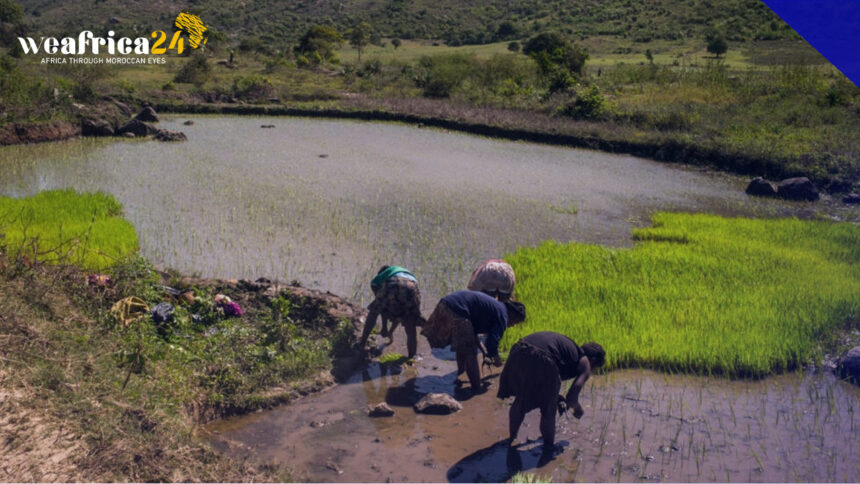In Madagascar, the distribution of improved ammonium sulphate fertilizers, supposed to boost agricultural yields and allow the country to achieve food self-sufficiency, was a promise from the authorities. Their marketing, however, raises many concerns about their environmental impact. The government, on this ground, wants to be reassuring. Explanations.
In February 2023, Malagasy President Andry Rajoelina announced the official launch of the Improved Ammonium Sulfate Fertilizer Distribution Program. A nitrogen fertilizer from the nickel and cobalt production process was extracted from the Ambatovy mine and offered to the Presidency by the mining giant. This endowment of agricultural inputs to farmers is one of the “Velirano”, the President’s promises, designed to allow the Big Island to achieve food self-sufficiency.
The marketing of this fertilizer sold at low cost raises a lot of concerns as the ecological issues are important. For its part, the government wants to be reassuring.
Agronomists unanimously agree that ammonium sulfate increases yields, but many experts fear that its use on the island risks acidifying the soil too strongly and rendering it uncultivated. An anonymous agronomist highlights the danger of this, noting that restoring the soil will take years of work. This concern is further amplified by the difficulty of controlling and monitoring the circulation of products in Madagascar.
He emphasizes that we must be very careful when it comes to phytosanitary products because they travel, they are exchanged, and parallel networks are set up. Additionally, he highlights that there is a desire to use these products due to their attractive price.







